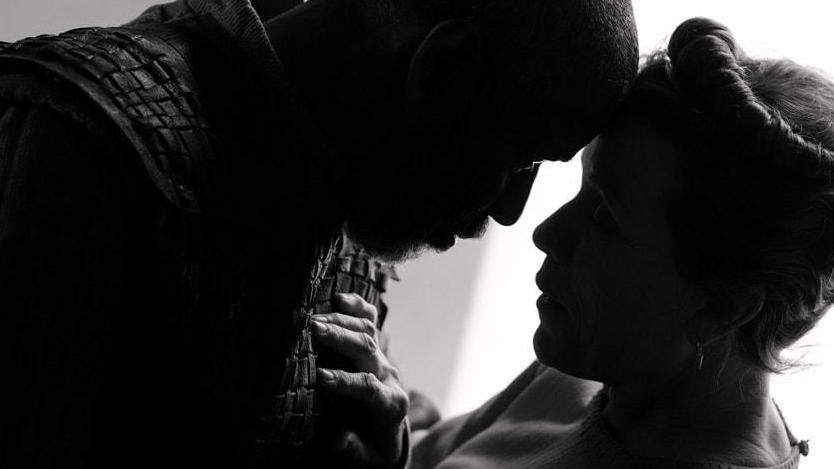The best-known lines are still there, of course — “Is this a dagger which I see before me” and all the rest.
Coen and his cinematographer, Bruno Delbonnel, evoke the look of older movies with a spectral black-and-white palette and a nearly square frame.
At times you might be reminded of Orson Welles’ 1948 Macbeth, and also of Akira Kurosawa’s masterful 1957 retelling, Throne of Blood.
The tormented souls here are played by Denzel Washington and Frances McDormand, and it’s fascinating to watch two of our most famous actors step out of this movie’s expressionist shadows.
All three witches are played by the English stage actor Kathryn Hunter, whose brilliant performance, with its spooky intonations and contortionist gestures, give this movie its darkest magic.
Coen’s staging of Macbeth’s sequence with the witches is ingenious: Rather than showing us the witches stirring their pot, he positions them up in the rafters like birds, looming over Macbeth, while the floor beneath his feet becomes a bubbling cauldron.
And Washington is remarkable: I had feared that this role might call forth a lot of stentorian bellowing, but until all hell breaks loose in the final act, the actor underplays beautifully.
Brendan Gleeson plays the doomed, unsuspecting Duncan with a genuinely kingly air, while Bertie Carvel brings the requisite gravity to the role of Banquo, the close friend and battle comrade whom Macbeth will betray.
Like the many movies Joel Coen has made with his brother Ethan, The Tragedy of Macbeth has been directed to within an inch of its life, which leeches it of some emotional impact.
